| site search by freefind |
- Home
- Bible Prophecy
- Book of Signs
- Russia in Bible Prophecy
[If you purchase anything on this site, I may make a commission. Disclosure Policy]
Russia In Bible Prophecy?
Before we look at The Book Of Signs’ claim to find Russia in Bible prophecy, I wanted to make an observation. The book does not mention the evangelistic implications of its teaching. If it’s claimed that Russia, Iran and other nations are part of an inevitable prophecy to attack and attempt to destroy Israel, then why would we evangelize Russia and these other nations? They will always be heathen and unGodly nations. And if some poor Christians were assigned to preach the gospel there, they could have no hope of success. Such an idea would violate the Great Commission and should horrify Christians as being anti-Christ and anti-gospel. God loves and cares for the Russians and the people in these ‘prophetic’ nations as much as He loves and cares for anyone else… including Israel. The idea that God could love Russians as much as Jews seems foreign to the very foundation of this book.
Sitemap -
Newsletter -
Statement Of Faith -
Donate
Follow us on social media for daily Scripture comments and more at MeWe, Facebook or YouTube.
Russia In Bible Prophecy?
We have at least two strong reasons for believing that Rosh and Russia are the same. First, it is not hard to see the phonetic similarity between Rosh and Russia. Jeremiah, David. The Book of Signs (p. 33). Thomas Nelson. Kindle Edition.
So the first ‘strong’ reason is that they sound alike. [Camel and Camera sound a lot alike, too.]. Let’s examine this verse closely.
“Son of man, set your face against Gog, of the land of Magog, the prince of Rosh, Meshech, and Tubal, and prophesy against him, Ez. 38:2, NKJV
Son of man, set thy face against Gog, the land of Magog, the chief prince of Meshech and Tubal, and prophesy against him, Ez. 38:2, KJV
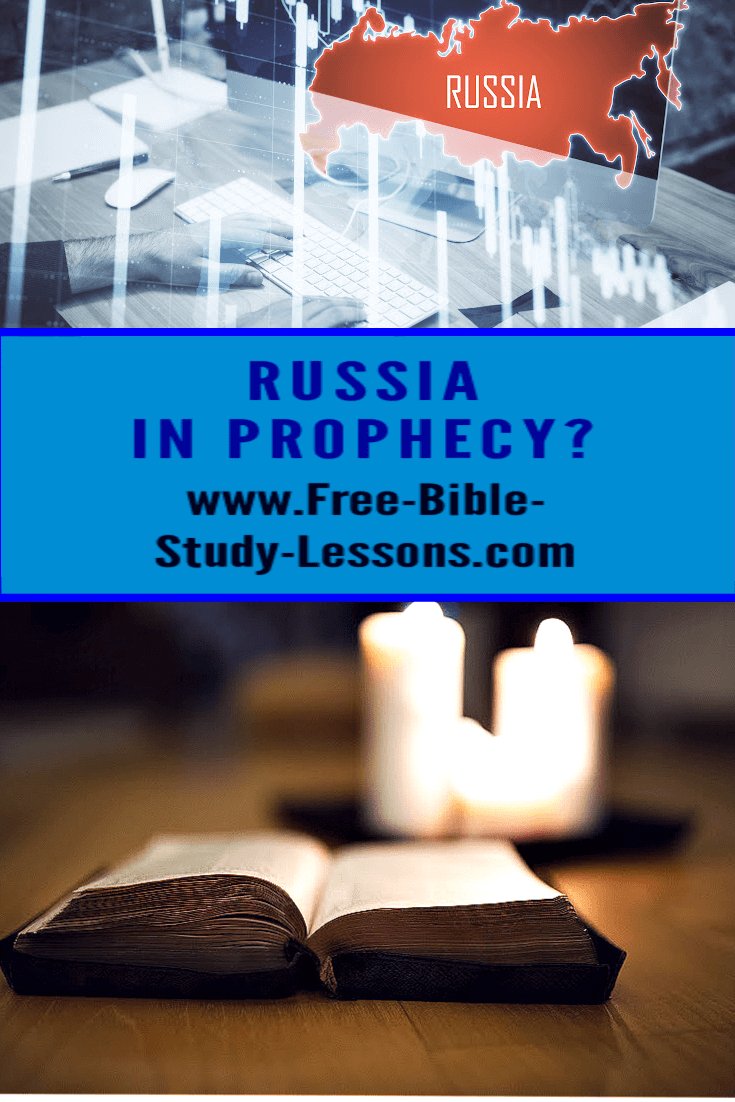
Notice the difference between these two translations. In the NKJV, it would appear that Rosh is a place, but in the KJV, it would appear that Rosh [chief] is describing the prince. Bible translators are divided on this, as you can see by consulting various translations.
So, what does the word Rosh actually mean? This word simply means ‘head’ [translated 349x], chief [translated 91x], top [translated 73x]. In fact, this word is used 598 times in the Old Testament and never once does it mean Russia. So much for strong reason #1.
Second, the Bible refers to the location of Israel as “the middle” of the earth…So whenever we find geographical directions in prophecy, they are given in relation to the position of Israel. The prophet Daniel described the ruler who would lead an attack against Israel in the latter days as the “king of the North” (Dan. 11:5–35). Ezekiel’s prophecy says the invading armies will come to Israel “from the far north” (Ezek. 38:6, 15). Only one country occupies a geographical position in the “far north” in relation to Israel. That nation is Russia, whose landmass stretches from the Baltic to the Bering Seas. Jeremiah, David. The Book of Signs (p. 33). Thomas Nelson. Kindle Edition.
It is not fair to expect Ezekiel to have the knowledge of geography we do today. The Book of Signs equates this with Dan. 11:5-35.
The eleventh chapter of Daniel makes difficult reading for those who are unacquainted with the history of the times to which the prophecy relates. The latter part of the chapter has proved difficult also for expositors, among whom there is a wide difference of opinion as to the persons and events being referred to. Down to the end of verse 30 almost everyone is agreed as to the meaning of the prophecy. We are not aware of any sound and competent teacher who does not see, in vs 1-30, the main outlines of Persian history, the rise of Alexander of Macedon [the Great], the division of his empire between his four generals, in incessant wars between the Seleucids [kings of Syria, “the north”] and the Ptolemies [kings of Egypt, “the south”], and the career of Antiochus Epiphanies - that odious persecutor of the Jews, spoken of as the “vile person.” The Seventy Weeks Of Daniel, Phillip Mauro
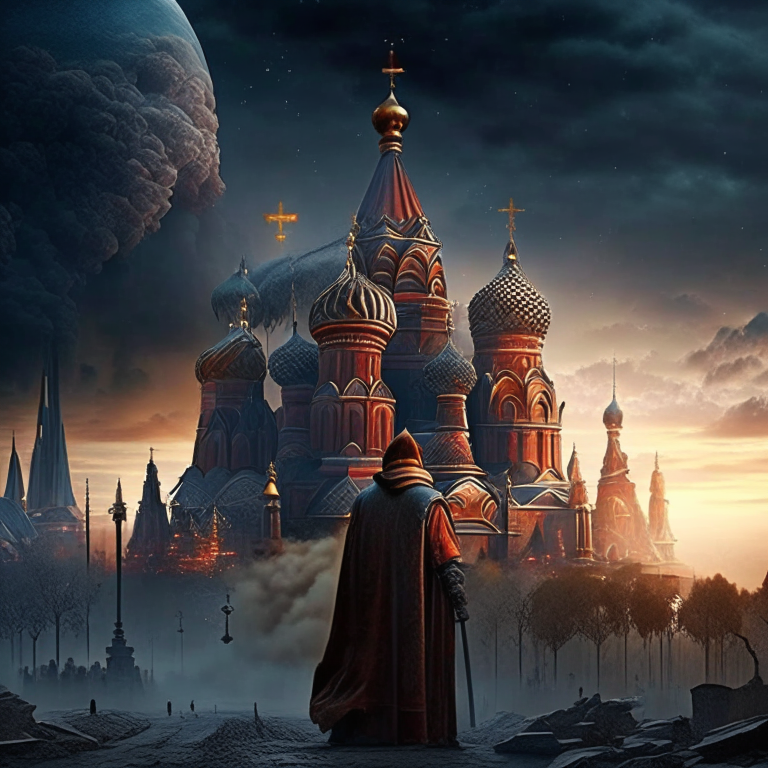
So, contrary to The Book Of Signs, most commentators see the king of the North in Daniel 11 as the king of Syria. Therefore, if Ezekiel uses the same reference Daniel used, he is talking about the Syrian nation north of Israel, not Russia. In this case, we have no substantial evidence that Ezekiel refers to Russia in his prophecy. And if Ezekiel isn’t talking about Russia, then all the applications in this chapter are pointless. But let’s continue…
Meshech and Tubal were the fifth and sixth sons of Japheth and, therefore, grandsons of Noah (Gen. 10:2). The descendants of these men established cities or territories bearing their names. C. I. Scofield identifies Meshech as “Moscow” and Tubal as “Tobolsk.” Other scholars identify them as territories in modern Turkey…Because of the similarity between the words, many have taught that Gomer was the founder of the nation that is now Germany. Jeremiah, David. The Book of Signs (p. 34-35). Thomas Nelson. Kindle Edition.
Russia In Bible Prophecy:
Let's See What Others Say...
Those who hold that “Gog”…is the Soviet Premier generally make the further claim that “Meshech” is really Moscow, “Tubal” is Tobolsk and “Gomer” [of Ezk. 38:6] is Germany. In his very helpful examination of the issue, Ralph Woodrow comments: “This is doubtful. ‘Moscow’ comes from the Moscovites and is a Finnish name. Moscow was first mentioned in ancient documents in 1147 A.D., when it was a small village. Some think Tubal means Tobolsk, but this is only a similarity in sound. Tobolsk was founded in 1587 A.D. Some think Gomer means Germany. It is true the words ‘Gomer’ and ‘Germany’ both begin with a ‘G.’ So does guesswork.” Days Of Vengeance, David Chilton pg. 522
These individuals were considered Germanic speakers. In order to differentiate between the regions and the people, English speakers began to refer to the country as Germany, which originates from the Roman term Germania. The first recorded use of this word by English speakers dates back to 1520 AD. Prior to that, English speakers referred to this country as Alman and Almain… https://www.worldatlas.com/articles/how-did-germany-get-its-name.html
The expression God and Magog does not, and never did, refer to Russia……in Jewish writings, “Gog and Magog” was a frequent, standard expression for the rebellious nations of Psalm 2. Days Of Vengeance, David Chilton pg. 522-523
Is it just me, or does the main argument for the identification of modern nations with Ezekiel’s prophecy seem to be just a ‘sounds like’ or ‘looks like’ argument?
Russia In Bible Prophecy:
Literal?
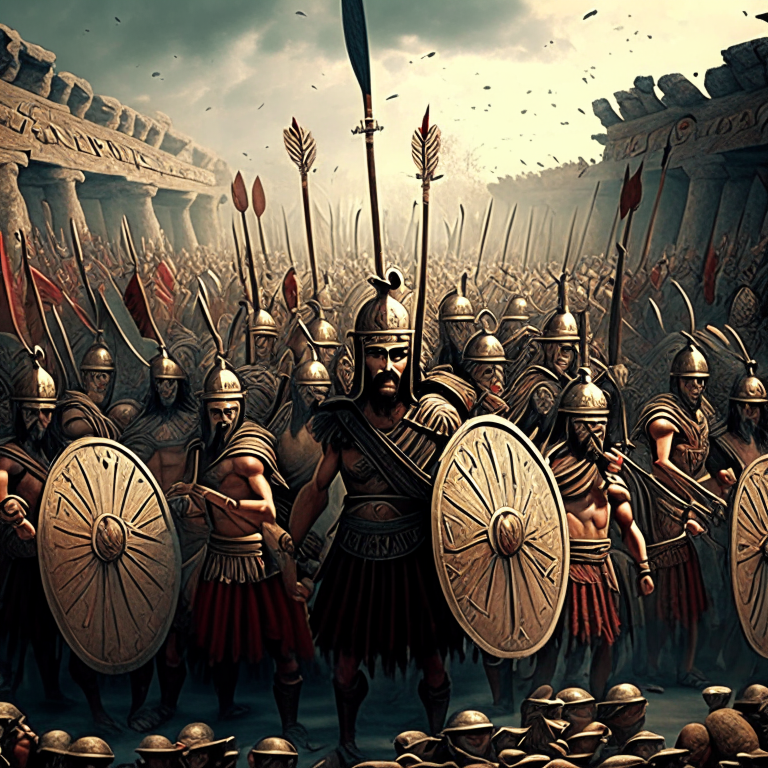
Israel has always been outnumbered in its wars, but in this instance it will be so grossly mismatched that there will be no human way for the nation to survive…Not only will the failed Russian invasion leave masses of bodies, but it will also leave the coalition’s military equipment littering the landscape. How will these now-useless weapons be discarded? Ezekiel says, “Those who dwell in the cities of Israel will go out and set on fire and burn the weapons, both the shields and bucklers, the bows and arrows, the javelins and spears; and they will make fires with them for seven years” (v. 9). Jeremiah, David. The Book of Signs (p. 39, 41). Thomas Nelson. Kindle Edition.
The Book Of Signs obviously expects us to take these chapters of Ezekiel literally. As one reads through the Russian Chapter, literal explanations are everywhere. However, some important details are ignored. I suggest you refer to Ezekiel chapters 38 and 39 to confirm what I will say.
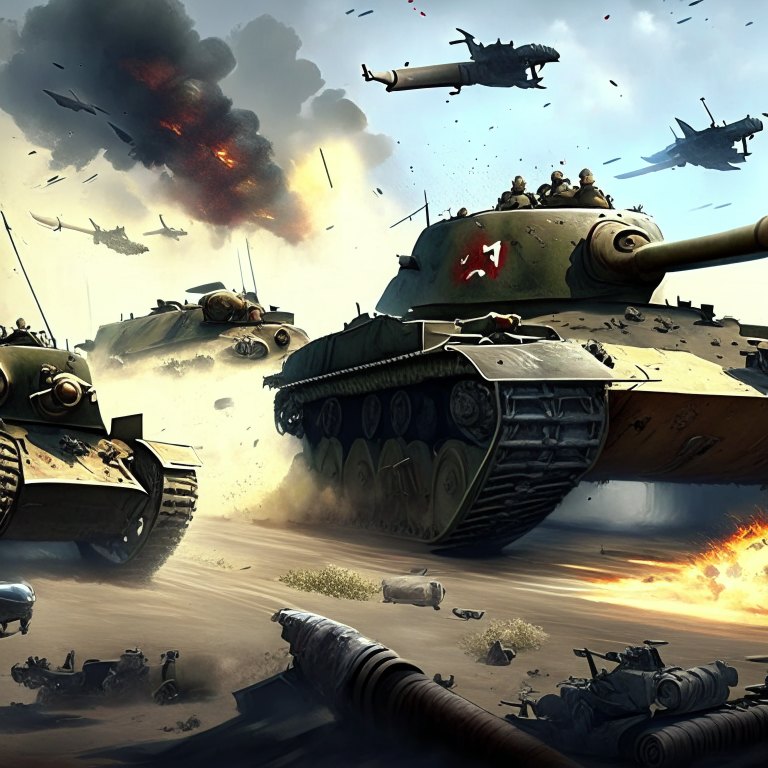
The invading armies will either be on foot or riding horses. Their weapons are swords, shields, spears, bows, etc. [This may explain the Israelite victory if they counterattack with tanks and airplanes.]. In addition, all these weapons must be made of wood because the Israelites will use them for fires [apparently, electricity is no longer working]. It is going to take seven months to bury all the dead. Consider the comment in the Jamieson-Faussett-Brown Bible Commentary:
The wood of their invaders' weapons was to serve for fuel to Israel for seven years! And all Israel were to take seven months in burying the dead! Supposing a million of Israelites to bury each two corpses a day, the aggregate buried in the hundred eighty working days of the seven months would be three hundred sixty millions of corpses! Then the pestilential vapors from such masses of victims before they were all buried! What Israelite could live in such an atmosphere?
We cannot have part literal and part symbolic prophecy, especially if it is randomly chosen to fit a particular end-times theory. If someone insists on some parts being literal, they must be consistent enough to take it all literally [and not ignore parts].
Russia In Bible Prophecy:
Agreement
We who trust Him have no reason to fear. As I have read Ezekiel 38–39, the one thing that stands out is the sovereignty of God. He is in control. Jeremiah, David. The Book of Signs (p. 43). Thomas Nelson. Kindle Edition.
At last! Something we can agree on.
Russia In Bible Prophecy:
So What Does Ezekiel 38-39 Mean?
It is often easier to eliminate wrong answers than to find the right ones. For example, if I need a 5-letter word for a crossword puzzle, I can eliminate all words with more or fewer letters. That is helpful, but I still need to find the correct word.
I trust to have shown that the application of these Scriptures to Russia and other modern nations is not supported by these Bible chapters in context.
Admittedly, these are difficult chapters to explain. This is a prophecy, so we would expect prophetic imagery to be used. The images are meant to provide us with a picture of what was future to the prophet, not necessarily to the readers. They help us to comprehend reality. For example, the prophecy in Daniel 11 gives us vivid imagery of the struggles in the 400 so-called Silent Years.
…imagery of Ezekiel 38-39, which prophetically depicts the Maccabees’ defeat of the Syrians in the second century B.C. Days Of Vengeance David Chilton pg. 520
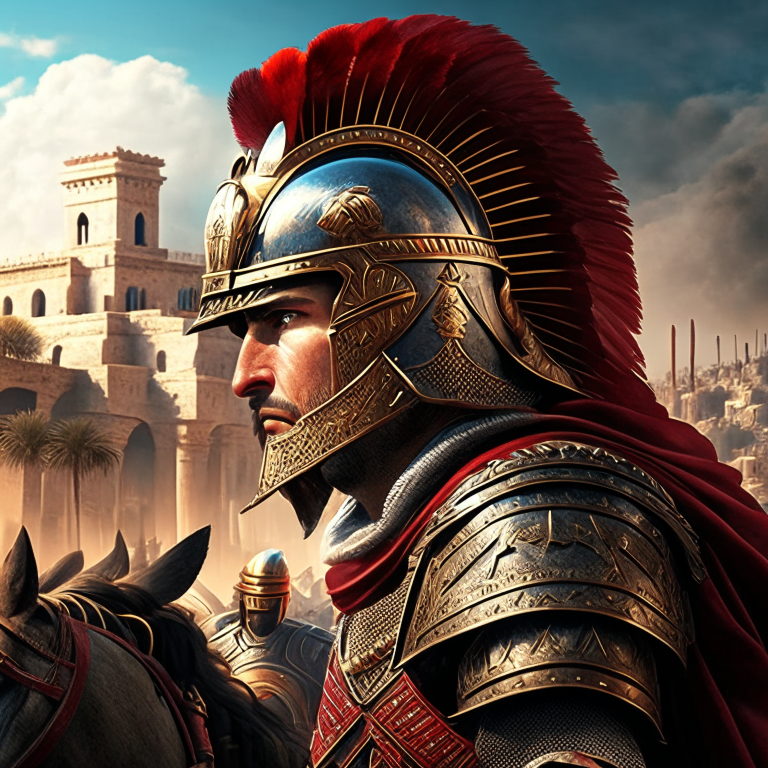
I think these chapters are picturing the Maccabean period, which occurred between the Old and New Testaments. Just because they are called Silent Years does not mean they were inactive. They are silent because there was no prophetic word given during this time.
The Jews enjoyed a time of peace after their return from Babylon. But then they were viciously attacked by Antiochus Epiphanies [Syria, the North]. Antiochus tried his best to destroy the Jew's faith in God. He ransacked the Temple, attempted to destroy all copies of the Old Testament, offered a pig on the Temple altar to defile it, and tortured and killed anyone who remained faithful to God. When things were looking dark, God raised up the Maccabean family. They formed a revolt and, against overwhelming odds, not only beat Antiochus and his Syrian army but also restored the boundaries of Israel to almost the same as they enjoyed under David and Solomon. God was at work defending His people as He told them He would through Daniel and Ezekiel.
If you are interested in researching this time in history, you can read about it in Josephus and I & II Maccabees.
Some others believe that is a picture of the war against the Church, with Christ the ultimate Victor. This is not about Russia in Bible Prophecy as the dispensational view claims.
Return To The Book Of Signs.
Other Reading
The Severity Weeks Of Daniel [Course taken from Phillip Mauro’s book quoted above]
For more information about Glenn Davis, see our About Glenn page or visit Glenn Davis Books.
Follow us on social media for daily Scripture comments and more at MeWe, Facebook or YouTube.
Sitemap -
Newsletter -
Statement Of Faith -
Donate
Sign up for our free monthly newsletter or take one of our free Bible Study courses.
Please note: We no longer have the commenting feature [maybe again in the future]. Joshua Institute students who have questions or comments on their courses can use the contact button and mention the course name and lesson number in the email. Thank you. Glenn

Privacy - Disclosure
